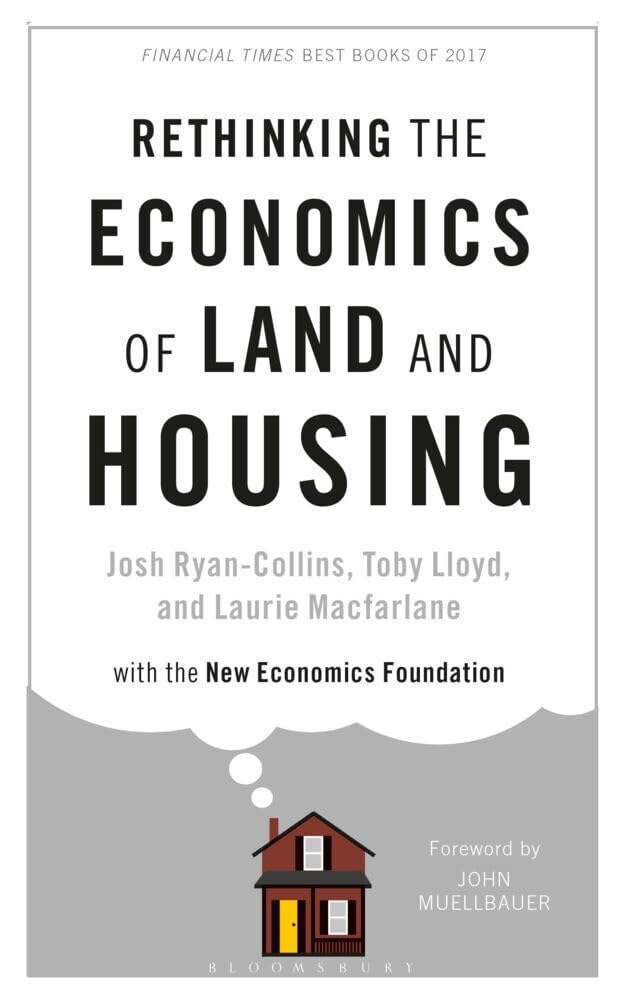Found in 2 comments on Hacker News
yonran · 2019-11-06
· Original
thread
Like all progressive taxation, the property tax is not solely a fee for government benefits received by the taxpayer. The property tax is a tool to reduce inequality—especially when it is applied to gains in land value. If we did not have property taxes (or when we protect existing landowners regardless of land rent increases under Proposition 13), then increases in land value from increased population would be entirely a zero-sum transfer from the new renters or buyers to the old owner, resulting in greater wealth inequality, since unlike capital the supply of land at a particular location is purely inelastic (see the first 4 chapters of Rethinking the Economics of Land and Housing for more https://www.amazon.com/Rethinking-Economics-Land-Housing-Rya...).


In Henry George’s terminology, he decomposed income into three components based on the three factors of production. Income from competitive labor is called wages, income from competitive capital is called interest, and income from land and other noncompetitive monopolies is called rent. He proposed to tax land and other monopolies heavily, while exempting labor and capital from tax. What I meant is that a progressive income tax has higher rates for people and companies with high profits while exempting capital and labor expenses, which is similar to the Georgist idea of taxing monopolies more heavily than capital and labor.
> You can read the details in "The Flat Tax: Updated Revised Edition"
Thanks for giving the reference to Hall and Rabushka https://www.hoover.org/research/flat-tax. Previously you mentioned making the curve progressive, which is not a flat tax so I just assumed you meant income tax.
In comparison to the current income tax, it seems that Hall and Rabushka do not exclude business interest expenses or personal mortgage interest, but they still do exclude wage expenses. Wages are progressive at the low end (due to the personal allowance) but their tax is not otherwise progressive. And they totally exclude personal capital gains from taxation (such as the sale of your house) (although the current income tax is not very good at taxing capital gains of real estate).
Basically, the point of the flat tax seems to be to eliminate complicated deductions, credits, and depreciation, and they are skeptical of progressivity which they see as “redistribution”.
Note that they themselves admit that their flat income tax should be combined with property taxes: “We believe that taxing housing is properly ceded to local governments under our federal system. Local property taxes capture part of the value of the services of a house.” (from Chapter 5: Q&A)
> Its a harmful distortion of the price system.
I disagree that LVT (tax on scarcity rents) is a harmful distortion on prices. Chapters 1-4 of Rethinking the Economics of Land and Housing is a good book on this topic. https://www.amazon.com/Rethinking-Economics-Land-Housing-Rya... As you note, the whole point of prices is to incentivize capital investment. But the difference with land is that it has a vertical long-term supply curve, so more money in land does not result in the creation of any more land; it’s just a transfer payment to the old owner.
Ownership of natural resources is a major undeserved source of inequality. We see the inequality playing out in San Francisco: residents who happened to own land became rich, whereas residents who did not own land became impoverished, just as Henry George wrote: “it is as though an immense wedge is being driven through the middle. Those above it are elevated, but those below are crushed” https://www.henrygeorge.org/pchp0.htm. It is better for the poor and better capital allocation to “distort” the economy to prevent extreme inequality between rentiers and laborers+capital.